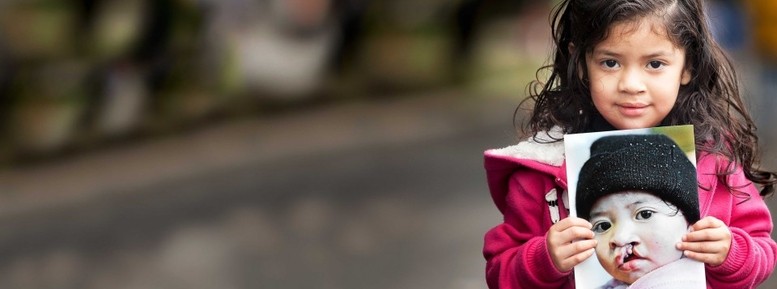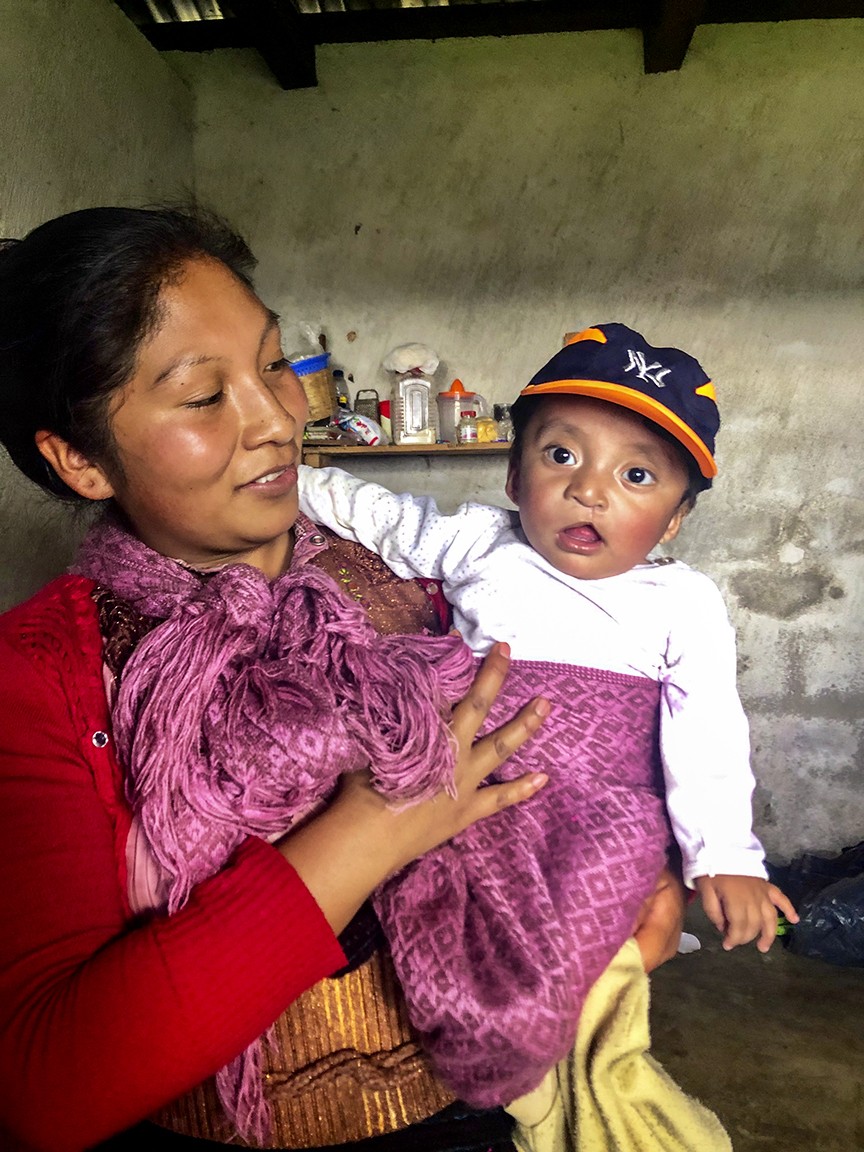
Cradled in a purple sling and nested on his mother’s hip, a very content Alexander was all smiles as his family welcomed Operation Smile volunteers into their home.
To see him healing so nicely, to see him gaining weight – it all was personal for volunteer Daniela Garcia. As a patient recruiter for Operation Smile Mexico, Daniela connected the family with an Operation Smile surgical program, where Alexander received surgery to repair his cleft lip.
A few months following Alexander’s successful surgery, Daniela and fellow volunteer Holly Zoeller found themselves in San Cristobal, working with this family once again.
But this time, Operation Smile called upon them to help even more people – with their stoves.
In many countries where Operation Smile provides care, it’s common for families to cook over an open flame inside their homes. While it’s well documented that a poorly ventilated cook stove can be a recipe for both fire and health hazards, there’s another layer that Operation Smile also seeks to address.
Preliminary research conducted by the organization and its partners suggests a potential link between cooking smoke inhalation and an increased risk of having a child with a cleft condition.
Holly and four Operation Smile student volunteers are looking forward to the day when travel restrictions are lifted, because when it's safe to do so, the team will spend a week in Chiapas, Mexico, replacing inefficient cook stoves with clean-burning cook stoves, hoping to boost the overall health of the community.
Alexander’s mother, Micaela, is “so dedicated to helping her son thrive. It reminded me why we were there: to try to create an intervention,” Holly said.
Daniela and Holly checked out the family’s stove and learned more specifics on how it’s used to prepare meals. Questions loomed such as which fuel do they use, how often do they cook, do they have any health concerns?
The duo harvested particulars from this family and others in the community, identifying specific needs as well as cultural preferences for taste and meal preparation. This feedback factors into the work slated for the team to tackle later this year and for years to come.
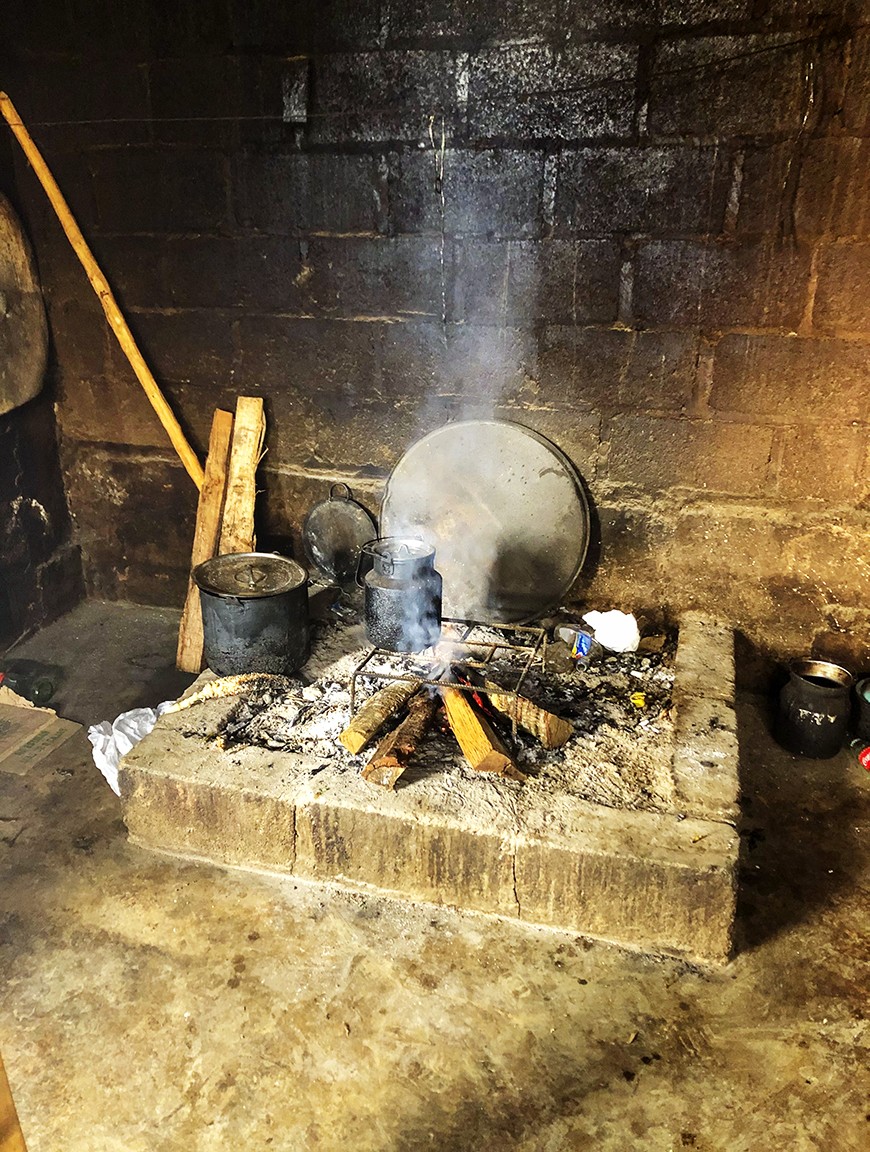
The Spark
Research conducted by Operation Smile and its partners was the spark that kindled the cook stove project.
To dig a little deeper into the causes of cleft conditions, Operation Smile teamed up with the University of Southern California and Children’s Hospital Los Angeles in 2009 to conduct the International Family Study (IFS).
As of 2020, the IFS team has collected more than 17,000 individual saliva samples representing more than 7,200 families, creating the largest and most diverse genetic repository of cleft samples globally. While the IFS team hasn’t worked in Mexico, they’ve worked with families in a handful of countries – from Guatemala to Madagascar to the Philippines – where there are especially elevated numbers of people born with cleft conditions.
Findings to date reveal a potential relationship between maternal smoke inhalation from cooking over an open flame and an increased risk of having a child born with a cleft condition.
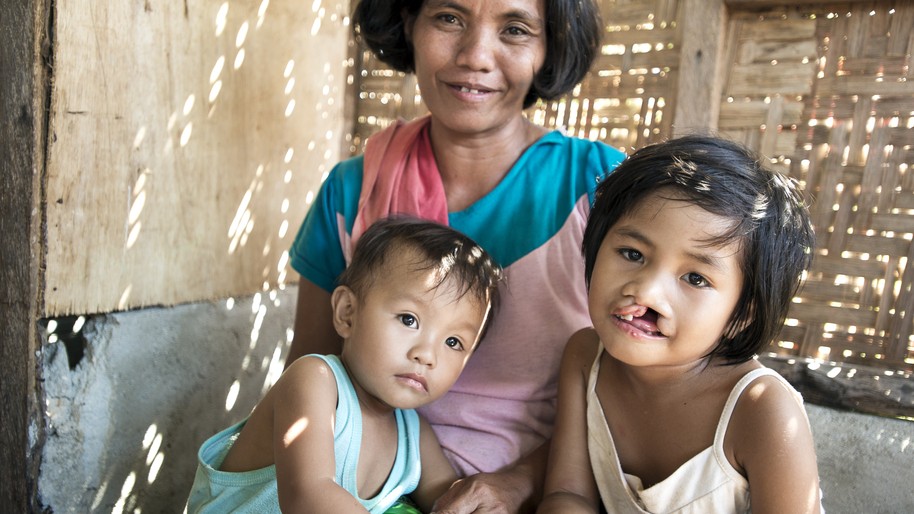
Such significant findings, coupled with the universal understanding that smoke affects the well-being of families, inspired Operation Smile to consider interventions. And a pilot project to replace open-fire stoves seemed like the natural place to start.
“I think (the cook stove project) could be incredibly beneficial and impactful on the global community that Operation Smile has been helping for so long,” Holly said.
For team member Jarrett Peterson, the cook stove project is taking action with an eye on long-term impact.
“I’m lucky enough to be working on a project that focuses on both the present and the future," Jarrett said.
In high school, Holly traveled to Antananarivo, Madagascar, for an Operation Smile surgical program and taught the fundamentals of health care to young patients. It was there that she witnessed the life-changing impact the organization makes in the lives of children and their families.
As a James Graham Brown fellow at the University of Louisville, Holly attended the 2019 Step UP Symposium – a conference for Operation Smile’s undergraduate volunteers – and learned something herself.
By using the money granted to her by the fellowship, she had the means to help Operation Smile further its mission of delivering care to patients and families around the world.
This is where the idea for the cook stove project was born.
“For two summers, (fellows) are given funding to create enrichment projects, which are dedicated to something we are interested in and passionate about,” Holly explained. “I originally thought of traveling with a program to do public health work, but after heading to Step UP, I realized that I could do much more impactful work with an organization I already knew and loved.”
Holly pitched her idea to members of the Operation Smile Student Programs team.
They’d already been in meetings with the organization’s co-founders, tracing an opportunity for students to lead the cook stove charge.
Holly’s involvement ignited this project and – after a handful of meetings and a formal proposal – she found herself working with Daniela and families in Chiapas, conducting a fact-find that would lay the foundation for the cook stove pilot project.
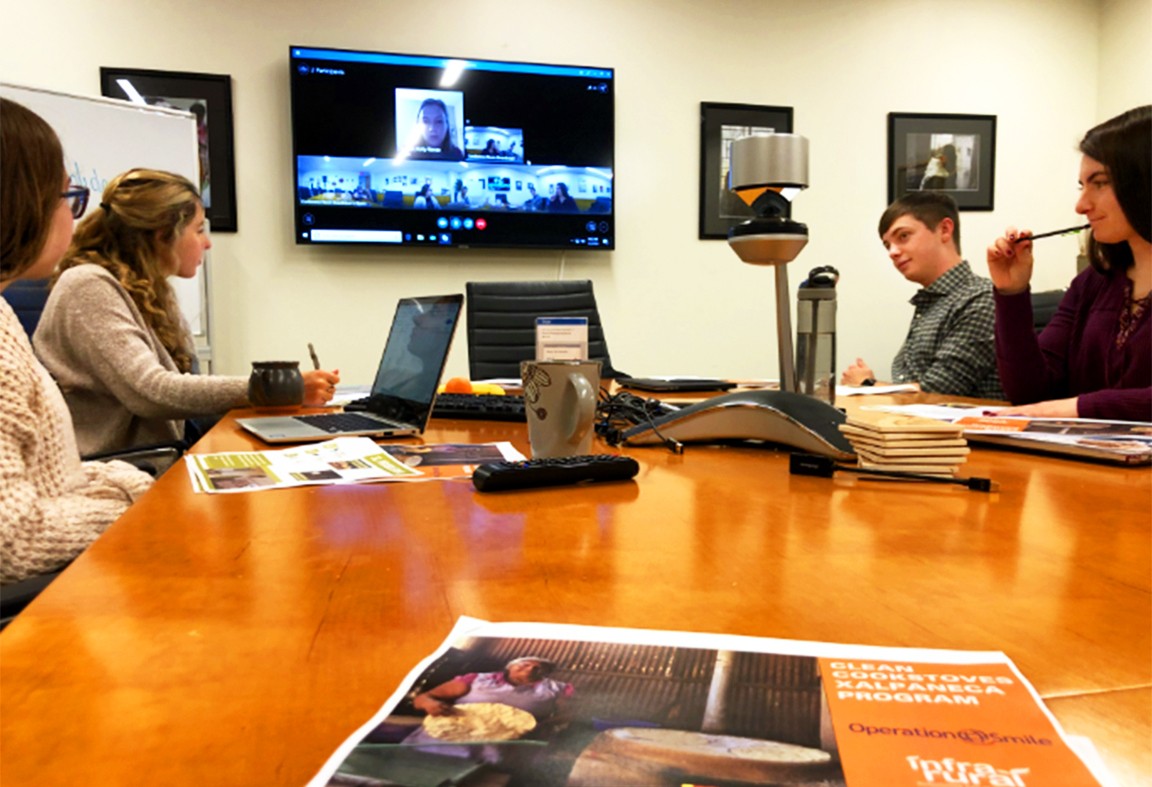
Heating Up
What’s supposed to bring health to families can also rob them of it.
Smoke from an open-flame stove seeps into the lungs and weighs down the chest. Breathing becomes difficult. A film of water veils the eyes.
“The opportunity to help families is why this trip to Chiapas so important,” Holly told her team of student volunteers during training in January.
Having already been in these homes, watching and engaging with families as they prepared lunch, Holly had felt the effects of smoke inhalation first-hand. She recalled that after only being in one of the houses for an hour, she left with a headache that lasted for the rest of the day.
This is what drives Sara Hatfield, a member of the cook stove team and a student at the University of Maryland College Park.
“To me, the cook stove project is a chance to educate and equip individuals in Chiapas with the knowledge and resources to be their healthiest,” Sara said. “We will be building together, talking, sharing meals and learning about each other and their culture.”
Holly channeled this spirit of service as she chatted in Spanish with a representative for InfraRural, a stove company based in Mexico City. Sourced entirely in-country and installed with the help of volunteers, each stove costs $240.
“I have no doubt that our partnership with InfraRural for the installation of cook stoves in a culturally sensitive manner will be instrumental to the health and safety of those living in Chiapas, enriching their lives for years to come,” said team member Briana Lonergan.
To start, the student team aims to sell T-shirts in order to fundraise enough to cover the cost of 15 stoves.
But the students’ job isn’t finished once they’ve helped install a stove and ensure it’s working properly. The students will invite family members of age to take part in a voluntary survey and field questions about their health and home.
This project is a “culturally sensitive program that will be implemented in partnership with the community,” Sara said.
Student Programs is working to ensure the project’s sustainability: When the next student team heads out to replace more stoves, they’ll also reconnect with families from the last trip, checking in to discuss their health and evaluate any trends.
“When I think of the scope of this project and all the potential it has, I am blown away,” Holly said.
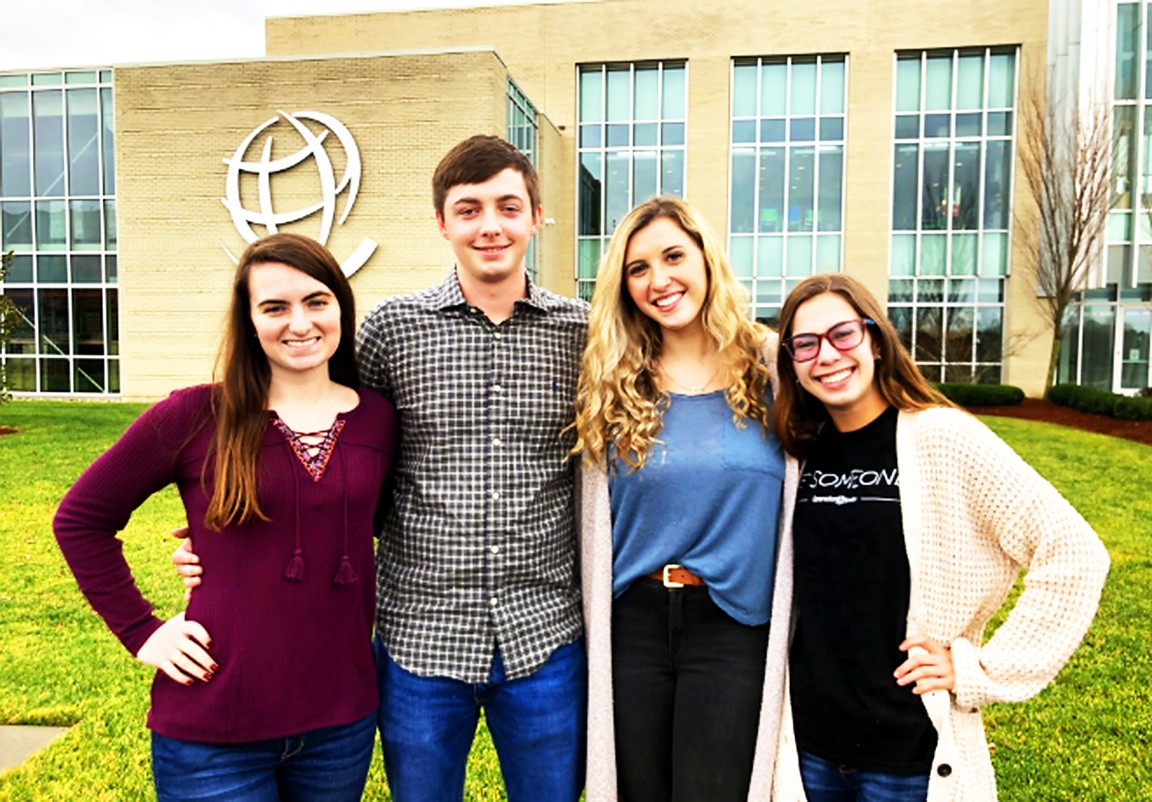
Latest Stories

Mateo's Journey

Meet Isaac

